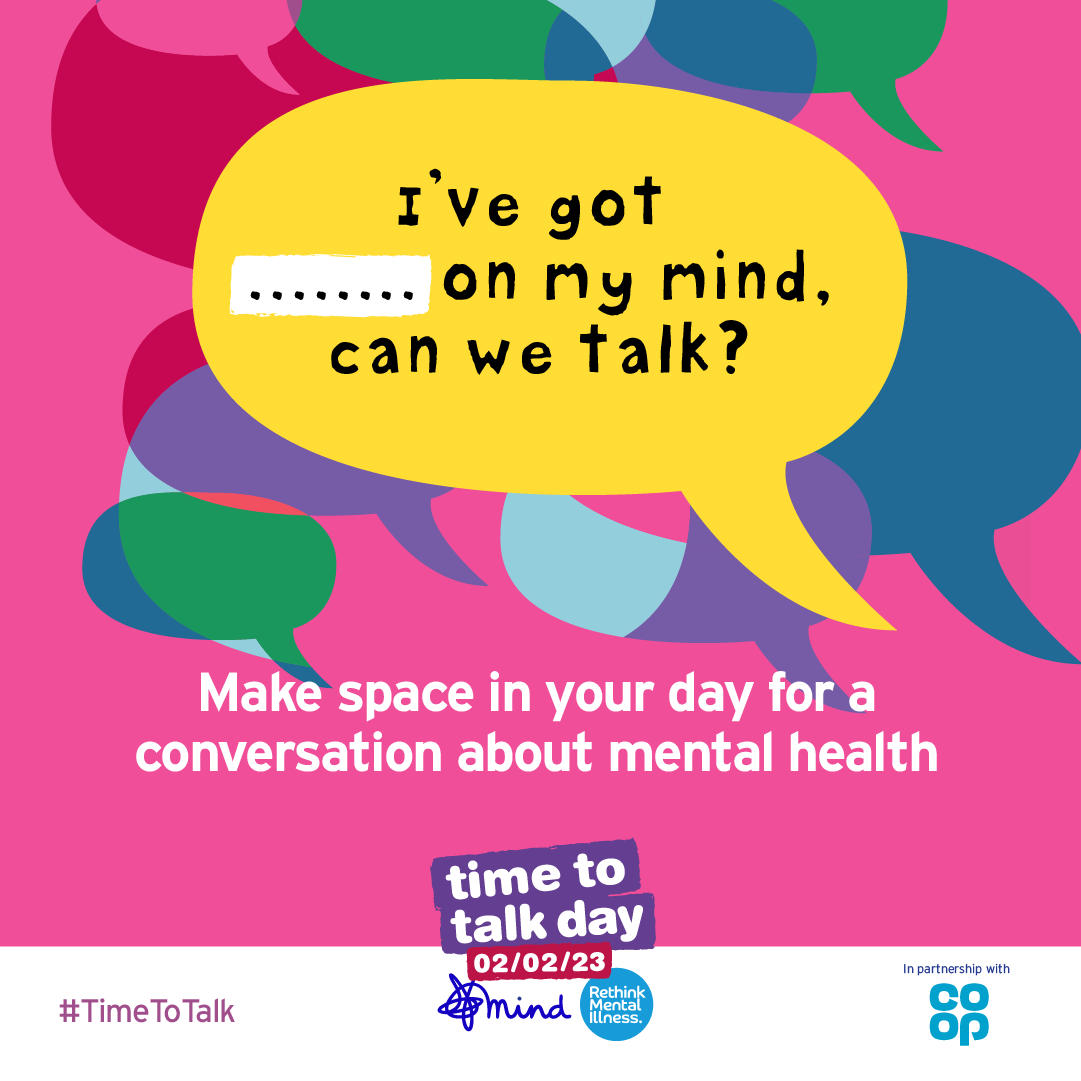Today is Time to Talk Day and we wanted to share some tips about how to start a conversation about mental health – whether it be with a family member, a friend or a complete stranger.
Mental health problems affect one in four of us, yet people are still afraid to talk about it. Having conversations about mental health helps to break down stereotypes, improve relationships, aids recovery and takes the stigma out of something that affects us all. At the moment, whether people experience mental health problems or not your mental health should be a priority and we should never feel ashamed to talk about it.
There are lots of different ways to have a conversation about mental health, and you don’t have to be an expert to talk. However you do it, make sure you have those all-important conversations about mental health this Time to Talk Day.
Here’s some tips for having a conversation about mental health:
1. Don’t wait to find the perfect moment
When we imagine conversations about mental health we might envisage something like a therapy session, but in reality, this isn’t the case. Just remember it’s far more important that conversations happen at times and in places that feel natural. Sometimes it’s easier to talk about our feelings when we are doing something else. The more typical the setting, the less unusual and uncomfortable the conversation can feel.
2. Ask twice
We know that people often say they’re fine when they’re not. So asking twice is an important way of starting conversations about mental health and letting people know that you really are interested. Sometimes we feel uncomfortable opening up if someone asks, “how are you?” because we think they’re just being polite. But if that person says, “no, really, is everything OK?” we know that they’re not just going through the motions.
3. Talk about yourself
If you want someone to open up to you it can help them feel safe and understood if you share your own feelings. You don’t have to disclose a mental health problem to them – you might not have any personal experience of one. It could be as simple as sharing that you get down sometimes or sharing something that you’ve been worrying about recently.
4. Approach the elephant in the room
If you know that someone has experienced poor mental health – maybe they took some time off work recently, or spoke about it in the past – don’t be afraid to ask how they’re doing. There are respectful ways to do this and it might not be appropriate to bring up specific details, but asking, “how are things now?” or “are you back at work?” shows that person that they have nothing to feel awkward about.
If you think someone has been acting differently it’s OK to mention that too, if it is done in a kind way. “You’ve seemed a bit quiet recently, is everything alright? I’m here if you want to talk.” This shows that you care and opens the door for them to chat about things when they’re ready.
5. It doesn’t have to be face to face
Talking in person to friends and family isn’t possible at the moment, but there are still ways to make conversations happen. Send a text or email or ask if they would like to video call. Social media is a brilliant way of keeping in touch with people, but just because we’ve liked a post or shared a funny video doesn’t mean we’ve really connected with that person.
If you or someone you know could do with a bit of support, please do get in touch. We are here for you. For information, advice or support – call 01482 240133, or email [email protected]. You can also text us on 07520 633 447 or message our Facebook page.
Our Time to Talk Roadshow – will you be coming to see us?
- Wellington House, Hull, HU3 1YA 4:30pm-6:30pm
- The Courtyard, Goole, DN14 6AE 12pm-2pm
- Central Library, Bridlington, YO15 2DF 12:30pm-3pm
- Toll Gavel Church, Beverley, HU17 9AA 10:30am-12:30pm
- The Library, Withernsea, HU19 2HH 12pm-2pm
- ASDA Hessle Road, Hull, HU3 4PE 10am-3pm




